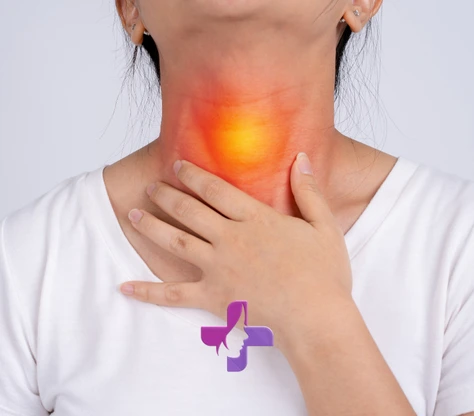Tonsils are clusters of lymphoid tissue located at the entrance to the mouth, on either side of the throat. They are also called “tonsils”. Tonsils play an important role for the immune system. They filter germs and other foreign substances that enter the body and activate the immune system against them.
Sublingual Tonsils (Lingual Tonsils): Located at the back of the tongue.
Tonsils at the Back of the Tonsil (Pharyngeal Tonsils or Adenoids): Located behind the nose, at the junction of the nose and throat.
Tonsils on Both Sides of the Tonsils (Palatine Tonsils): Located on both sides of the throat, at the entrance to the mouth.

Signs and Symptoms:
– Sore throat
– Difficulty swallowing
– Red, swollen tonsils
– Fever
– Headache
– General malaise
Causes: Tonsillitis is usually caused by bacterial or viral infections. Streptococcus bacteria is a common cause of tonsillitis.
Treatment: Bacterial tonsillitis is usually treated with antibiotics. For viral infections, rest, hydration and symptom-relieving medications are usually recommended.
Signs and Symptoms:
– Recurrent throat infections
– Snoring
– Sleep apnea
– Difficulty swallowing
Causes:
Tonsil hypertrophy can often develop due to recurrent infections or genetic factors.
Treatment:
Treatment varies depending on the symptoms and causes. Methods such as medications, surgical intervention or tonsillectomy can be used.
Signs and Symptoms:
– Sore throat
– Difficulty swallowing
– Earache
– Difficulty breathing
– Weight loss
– Bleeding
Causes:
Tonsil cancer is usually caused by the development of malignant cells. Risk factors may include smoking, excessive alcohol consumption and human papillomavirus (HPV) infections.
Treatment:
Treatment may include surgery, radiation and chemotherapy, depending on the stage and spread of the cancer.
If you are experiencing symptoms or have concerns about tonsil disease, it is important to talk to a health professional. The specialist will carry out the necessary investigations to make the correct diagnosis and determine the appropriate treatment plan.
Each of the contents on this site has been prepared for informational purposes. Do not apply any of the treatment methods described on the site without the supervision of a doctor. Otherwise, the site management and Assoc. Prof. will not be responsible in any way for any problems that may arise. Dr. Osman Halit Çam is not responsible.
© 2023 – All Rights Reserved. Assoc. Dr. Osman Halit Cam
Last Updated: 25.07.2025